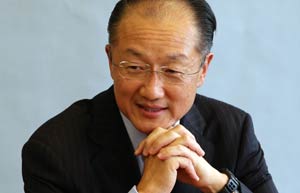The unexpected moves of the Western countries to stabilize their monetary policy compelled BRICS countries to adopt rather tough measures to protect their economies, better coordinate their policies and, in particular, launch several joint initiatives in the framework of the G20.
On the initiative of BRICS, a series of issues were actively discussed at the G20 last year, which included the problem of ensuring funding for long-term projects, the idea of developing a stock market based on national currencies, and the reform in the international financial system, such as regulation of over-the-counter derivative market and the "shadow" banking system. BRICS also favors the 15th review of IMF quotas.
In the year since the fifth BRICS summit, its members have achieved real progress in several areas. They have advanced markedly on a broader use of their currencies for trade settlements and payments, which has helped stabilize their economies in the face of a shaky world economy. They have also succeeded in prioritizing their areas of cooperation in science and innovation (for example, combating climate change and dealing with natural disasters and environmental catastrophes, designing and using new energy sources, and raising energy efficiency levels). And they are working on how to extend bilateral cooperation contracts in science - already signed by BRICS countries - to other groups of countries and thus convert them into multilateral contracts.
BRICS members have already reached agreements on several multilateral projects of strategic importance, the largest among them being the setting up of an alternative network infrastructure, an Internet segment independent from the United States and the United Kingdom. For this purpose, a cable system is being laid from Vladivostok (Russia) to Shantou (China), Chennai (India), Cape Town (South Africa) and Fortaleza (Brazil). The cable system will not only help boost the member countries' IT security, but also broaden technology transfer, increase commodity turnover and simplify financial operations.
Education has become an important cooperation area for BRICS members. Issues such as mutual recognition of university diplomas, expanded academic mobility, greater educational contacts are on the agenda. And the academic ranking of best institutions for higher studies in BRICS countries has already been developed.
On the political front, the Ukraine crisis has highlighted BRICS' role in the geopolitical stabilization mechanism. Russia appreciates other BRICS members' understanding of the situation in and around Ukraine, their disapproval of Western sanctions against Russia, and their stand that the position-of-strength policy does not ensure a balanced and peaceful crisis resolution. Russia lauds the fact that during the UN General Assembly voting, the other BRICS members were among those that supported Russia (either by voting against Western sanctions or by abstaining from voting).
Although it is difficult to list all areas of successful interaction among BRICS members, but it can be said that advantages of the complementary economies are used to the maximum to expedite economic development, it will benefit the entire group. Of course, there are disagreements among member countries, but today centripetal forces are stronger than the centrifugal ones, and common interests motivate countries to search for compromises to settle disputes.
More importantly, member countries know that BRICS is an important intermediate platform for negotiating individual interests, as well as to decide the strategy they should adopt at the G20 - which helps them to influence the agenda of global reforms. If BRICS countries succeed in working out a common goal on a certain point, the chances of the G20 approving it increase manyfold and, consequently, they would be in a better position to realize their geopolitical interests.
The author is deputy director of the Institute of Economics, Russian Academy of Sciences. The opinions expressed on this page do not necessarily reflect those of China Daily.
 |
 |
| BRICS seeks new paths to develop |
|
